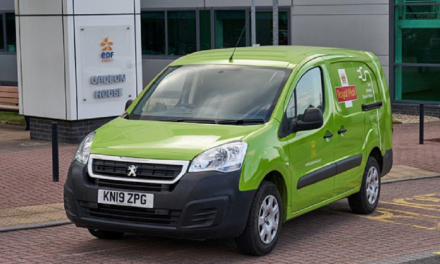
Repackaging brand to stamp out losses: Turning the Post Office into a financial services leader is the challenge for its chief
David Mills, chief executive of the Post Office, looks exasperated when asked why post offices lose money in spite of being so busy that queues fill every inch of floor space in most big branches. It is a question that mystifies members of the public, but the answer is clear to Mr Mills. "The more things we sell the more money we lose," he says.
The problem is that most of the transactions carried out by post offices are not to do with selling at all but moving money around for government departments or banks and utility companies.
About 24m people pay bills at a post office and 27 per cent of the UK's cash is being handled by the Post Office at any one time. But Mr Mills says the state-owned company, part of Royal Mail Group, does not always get paid market rates for carrying out the work. "It's a free resource," says Mr Mills. "We have been delivering government services and not products and services of our own."
Apart from selling stamps, the Post Office has traditionally been the distribution network for many government benefits and products, from pensions to passports, and Mr Mills says some of the transaction fees do not cover costs.
Many would argue that while the Post Office is still state-owned this is exactly what it should do, regardless of whether it makes a profit. But Mr Mills points out that since the government started paying benefits directly to people's bank accounts, bypassing the post office counter, the network needs to find a new, and preferably more lucrative, raison d'etre.
The scrapping of benefit payments via the Post Office will remove 40 per cent of the company's Pounds 1.3bn annual revenue stream, says Mr Mills, and the fewer visitors means branches are less likely to make supplementary income from selling stationery and other products. But the change could be viewed as an opportunity for the Post Office to reinvent itself and, more importantly, to stem its heavy losses. "It's a call to action for one of the country's most important assets," says Mr Mills.
The Post Office's new role, if Mr Mills has his way, will be as a leader in financial services. He thinks the Post Office's strong brand, which he says is the most respected on the high street, and its 15,000-branches, will allow it to compete with banks and insurance companies.
The Post Office already sells personal loans through a tie-up with the Bank of Ireland and plans to follow this with credit cards and individual savings accounts. It will also offer a range of insurance products that will be competitively-priced thanks to its ability to buy in bulk from insurers. The Post Office has a large share of the bureau de change market and, from January, will offer home phone services through a deal with Cable and Wireless.
Mr Mills says the group's financial products will not always be the cheapest – "we are not rate chasers" – but will offer "good service and fair, simple, transparent products that are really convenient. You will never be ripped off by us".
A range of banks, including Lloyds TSB and Barclays, let customers pay in and withdraw cash at post offices and the group hopes to extend this service.
After the new products have been rolled out, Mr Mills says he will be able to beat the government's target of turning around the Post Office's finances by 2007. When he was made chief executive in 2002 the group was losing Pounds 1m every working day but Mr Mills expects to make a Pounds 50m profit in the 2004-05 financial year.
This target cannot be achieved without considerable cost cutting, however, which means reducing the branch network. The group is reviewing the future of many directly-owned Crown Offices and is in the process of closing 3,000 smaller sub-post offices, which are privately-owned and operated.
Post office closures are taking place in towns and cities where the group says there is overcapacity. The urban network will have shrunk to 5,500 by next April from 8,500 in 2002.
The 8,100 rural post offices are protected from closure by a Pounds 150m annual government subsidy, which covers their losses.
After these changes, Mr Mills says the Post Office network should be commercially viable and would not need to overhauled again. Although privatisation is not on the horizon, he says: "If we put the capital structure right it doesn't matter whose hands ownership is in."












